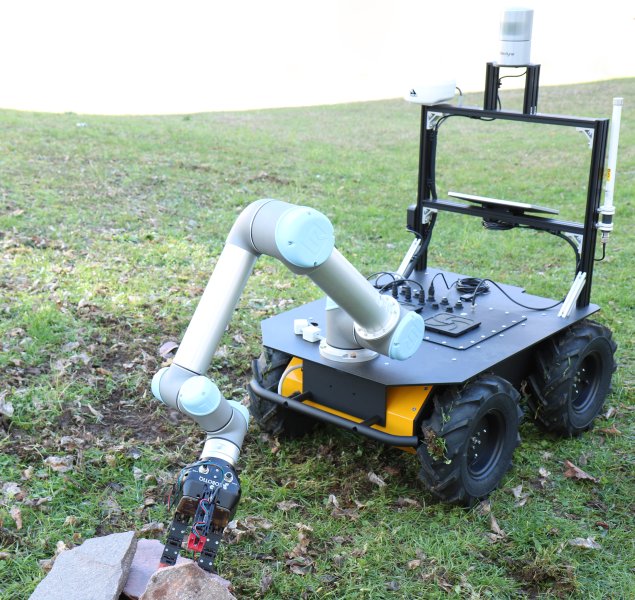FZI Research Center for Information Technology
The FZI Research Center for Information Technology has internationally recognized expertise in the field of mobile service robotics, manipulation, environmental modeling, modeling of decision processes as well as machine learning methods. For many years, the FZI has been developing novel mobile robotic systems for exploration and inspection missions in hazardous environments or evaluating existing systems. For the use in autonomous navigation in hostile, contaminated environments, systems for 3D-environment modeling, mapping and autonomous navigation are continuously developed. For industrial assembly tasks, service robotics in everyday life, but also for on-orbit servicing of modular satellites, both force-based and conventional manipulation strategies are being researched that allow complex, unknown objects to be securely gripped.
Research focus in ROBDEKON
The research focus of the FZI will be on the development of semi- and fully autonomous, force-based manipulation strategies for mobile robots. In addition, fusion methods for tele-operation and AR systems for intuitive, task-based control of autonomous robotic systems will be researched. The development of a task and resource management system enables a variable degree of autonomy to be specified safely and quickly when performing decontamination tasks. All this will be set up, evaluated and demonstrated to visitors in the Living Lab Manipulation at the FZI as an insightful showcase both visible and experiencable.
In the scope of the work carried out so far, intuitive, interactive assistance functions were developed for the retrieval of hazardous materials. These enable force-based gripping and manipulation of unknown objects on mobile robots as well as the manipulation of valves, levers and door handles. These assistance functions are to be predefined at a custom control station. The control station also displays the real-time capable 3D mapping, which was developed in ROBDEKON to enable 3D navigation in unknown terrain for various mobile robot systems. The developed AI algorithms enable rapid learning of new objects to classify and localize them on mobile robotic systems. These algorithms are also used for sorting hazardous materials on a conveyor belt.
